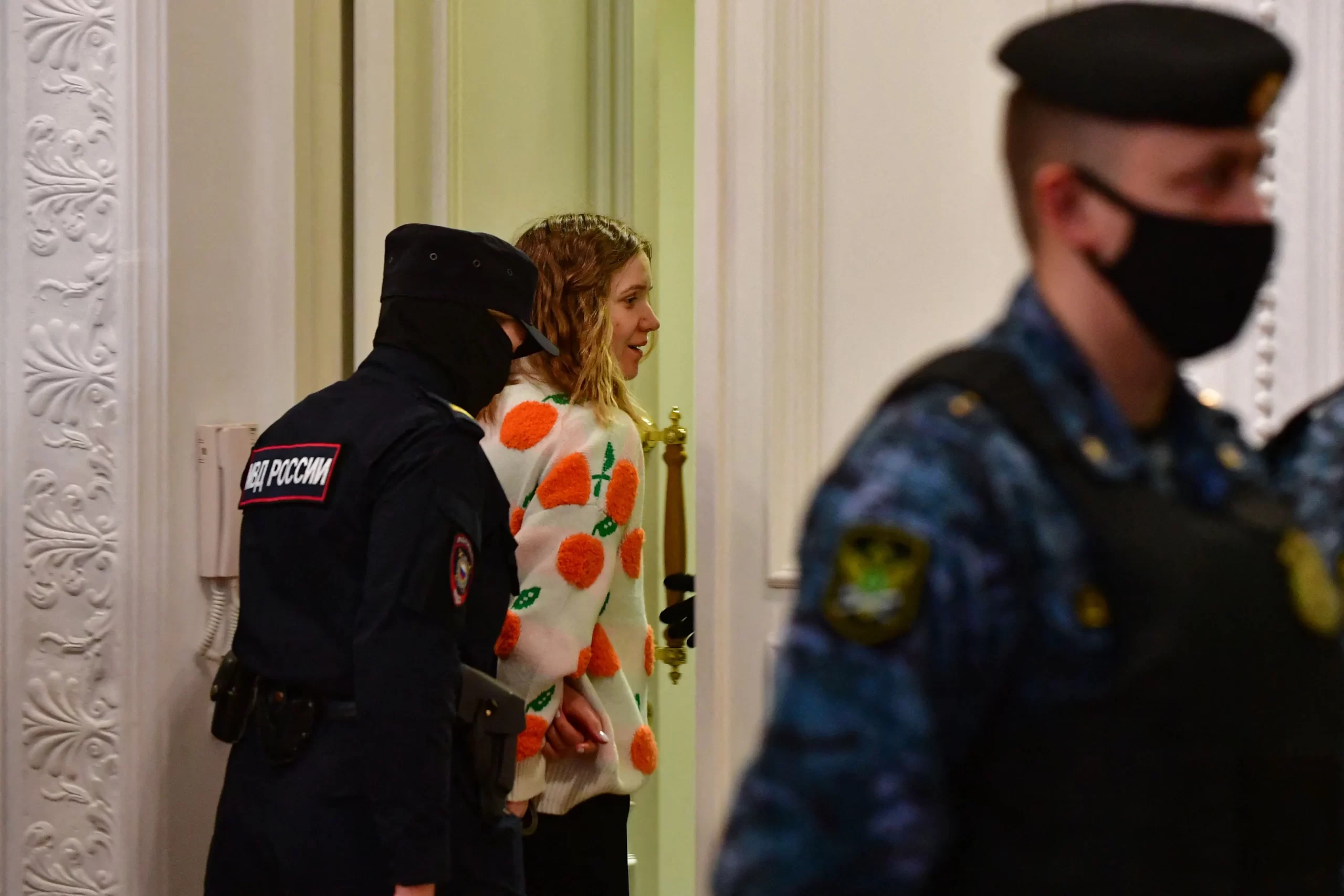In a highly charged trial, a Russian court has sentenced antiwar activist Darya Trepova to 27 years in prison for her role in the killing of prominent ultra-nationalist blogger Vladlen Tatarsky in a St Petersburg cafe.
The attack took place in April of the previous year, with Trepova providing Tatarsky with a miniature statue rigged with explosives. As he accepted the gift, Tatarsky, whose real name was Maxim Fomin, was killed instantly.
The 26-year-old activist defended herself, claiming she did not intend to kill Tatarsky but believed the object she handed him was a secret listening device.
During the trial, Trepova informed the court that she had acted under the orders of an individual in Ukraine known to her as “Gestalt,” who had been providing her with money and instructions for several months.
She expressed regret and acknowledged the catastrophic consequences of her actions, stating, “I feel great pain and shame that my gullibility and my naivety led to such catastrophic consequences. I didn’t want to hurt anyone.”

Trepova’s decision to collaborate with individuals in Ukraine was rooted in her opposition to Russia’s military offensive in Ukraine.
The explosion not only resulted in Tatarsky’s death but also injured over 30 other people, causing extensive damage to the St Petersburg cafe.
Trepova revealed that she explicitly questioned her handler in Ukraine about whether the statue was a bomb, expressing her fear.
She referenced a previous incident involving Daria Dugina, the daughter of an influential pro-war Russian nationalist, who was assassinated in a car bombing attack in Moscow in 2022.
Tatarsky, an influential military blogger, was part of a group of hardline correspondents gaining prominence for their coverage of Russia’s military offensive in Ukraine. Born in eastern Ukraine, Tatarsky had a criminal past as a convicted bank robber.
He escaped from prison to fight with Russian-backed separatists against Ukraine’s armed forces in 2014, advocating for a more aggressive military campaign against Ukraine.
Despite his criminal background, President Vladimir Putin posthumously awarded him the Order of Courage, citing his “courage and bravery shown during professional duty.”
Following Tatarsky’s murder, Russian authorities accused Ukraine of orchestrating the killing. Ukrainian officials neither claimed responsibility nor denied involvement, with presidential aide Mykhailo Podolyak characterizing it as “internal terrorism.”
Moscow has previously accused Ukraine of staging various attacks and assassinations inside Russia, including the killing of Dugina and a failed car bombing attack against pro-Kremlin writer Zakhar Prilepin.
The trial and subsequent sentencing of Darya Trepova highlight the complex and politically charged atmosphere surrounding dissent and antiwar activism in Russia.
The case underscores the geopolitical tensions between Russia and Ukraine, with each side accusing the other of engaging in acts of violence and destabilization.
The long prison term for Trepova reflects the severity with which the Russian authorities respond to perceived threats and acts that run counter to the state narrative, raising concerns about the state of freedom of expression and dissent in the country.


